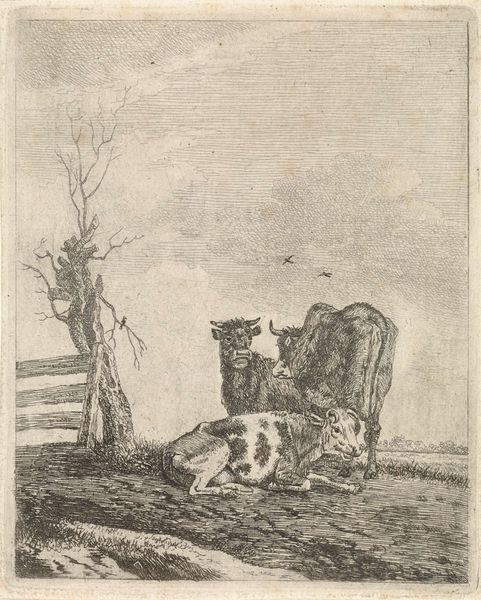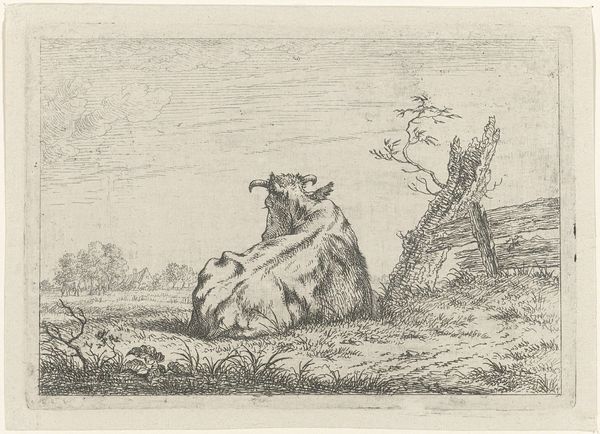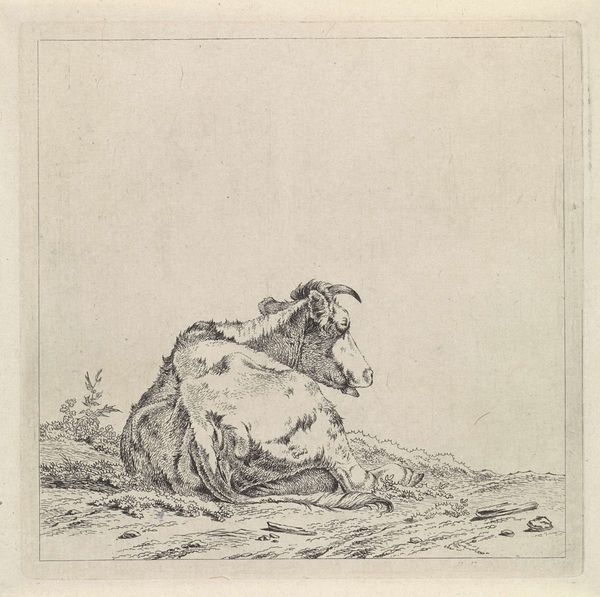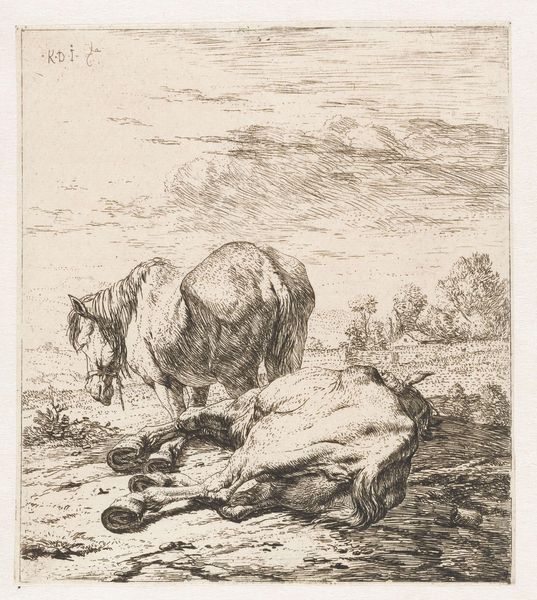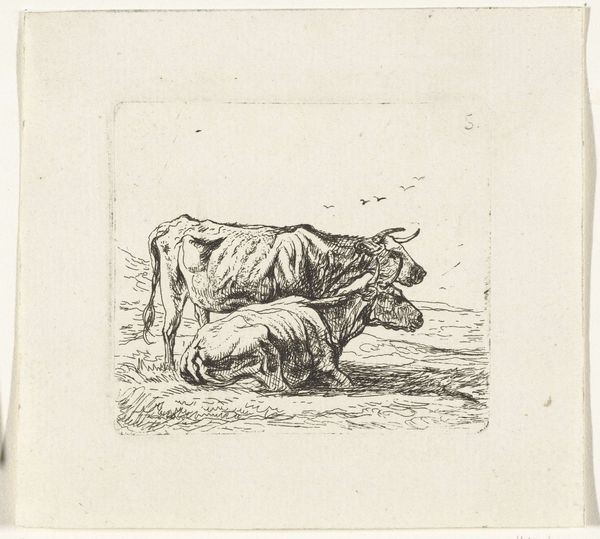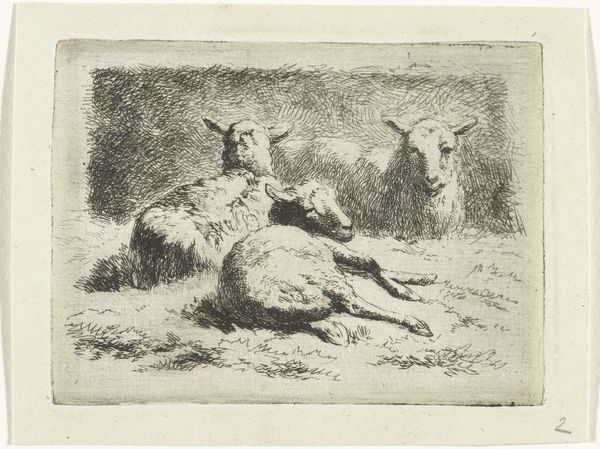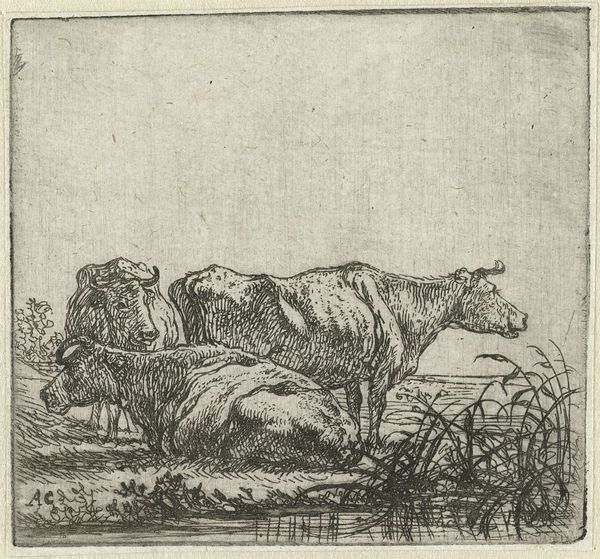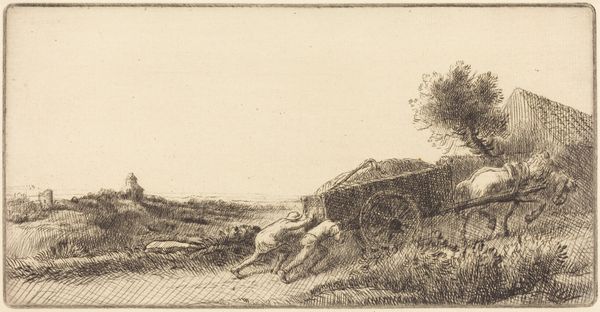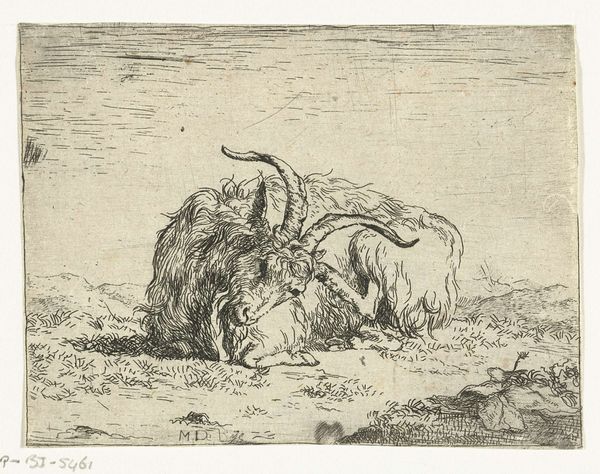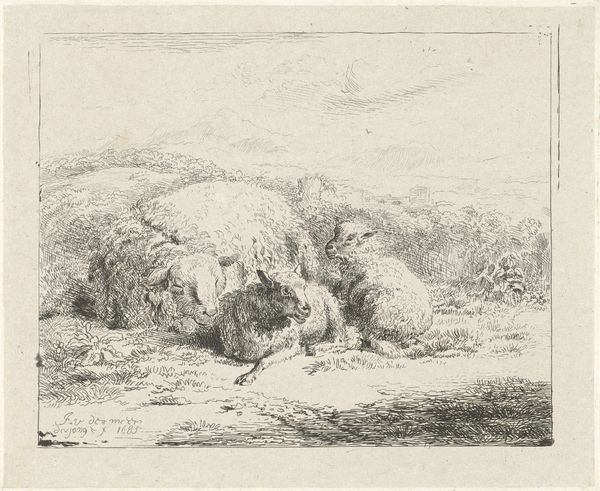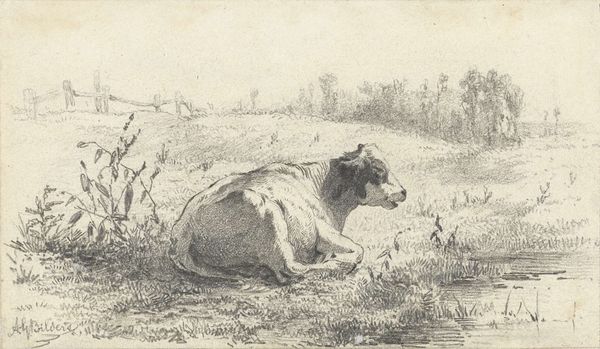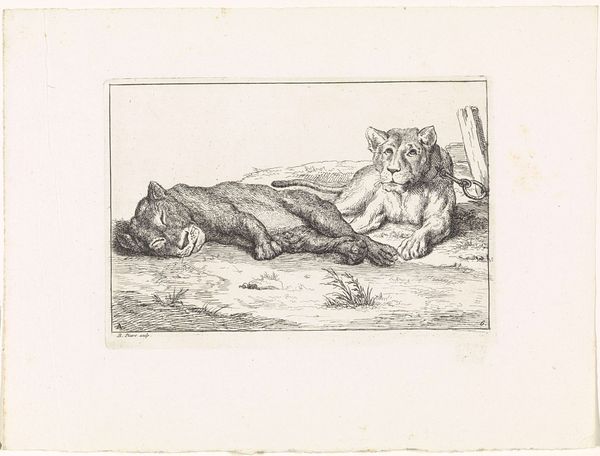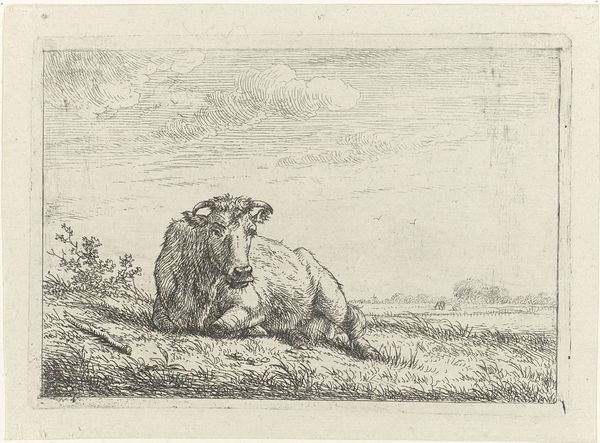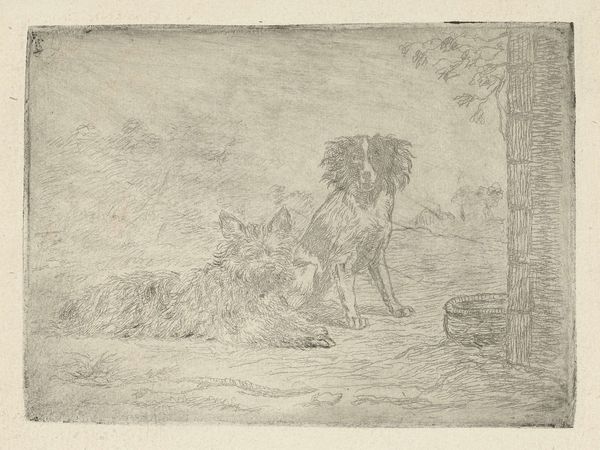
print, etching
#
animal
# print
#
etching
#
landscape
#
realism
Dimensions: height 167 mm, width 114 mm
Copyright: Rijks Museum: Open Domain
Pieter Janson created this etching of a landscape with three cows sometime in the late 18th or early 19th century. As an etching, the image began with a metal plate, likely copper or zinc, covered with a waxy, acid-resistant ground. The artist would have then scratched through this ground with a needle, exposing the metal beneath, before immersing the plate in acid. The acid bites into the exposed lines, creating grooves that hold ink. The result is this delicate dance of dark lines and open space. Note how Janson uses varied line weights to suggest depth and texture, from the dense fur of the cows to the sparse, skeletal branches of the tree. The etching process, while indirect, allowed for a level of detail and tonal variation that would have been difficult to achieve through direct engraving. But it’s not only the technique that is significant; this print is itself a product of a particular social and economic context. Etchings like these were often made for reproduction and distribution, making art accessible to a wider audience, a far cry from unique, handcrafted artworks. It sits at the intersection of art, craft, and commerce.
Comments
No comments
Be the first to comment and join the conversation on the ultimate creative platform.
